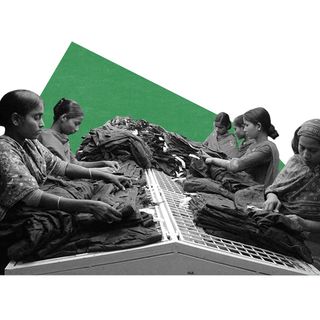The Karnataka High Court lamented the practice of manual scavenging continuing years after the practice was legally banned in the country.
The All India Central Council Trade Unions had approached the court regarding the death of two workers in the city of Kalaburagi in the state, who suffocated to death in a manhole they were unclogging, due to lack of oxygen.
“It is unfortunate that even when the act is in existence, its provisions are being violated by local bodies, by the state government, or by the contractors appointed by the local bodies,” the bench, comprising Acting Chief Justice Satish Chandra Sharma and Justice Sachin Shankar Magadum, stated.
India already has two statutes pertaining to the eradication of manual scavenging — the Employment of Manual Scavengers and Construction of Dry Latrines (Prohibition) Act, 1993 (the “1993 Act”) and the Prohibition of Employment as Manual Scavengers and their Rehabilitation Act, 2013 (the “2013 Act”). “While the 1993 Act banned manual scavenging in India, the 2013 Act provided for punishment for engaging any person for hazardous cleaning of sewers and septic tanks,” an article on The Print reads.
Related on The Swaddle:
Sanitation Workers on the Frontlines of the Pandemic Are Overlooked, Unprotected
Yet, in the five years leading up to December 2020, around 340 people engaged in manual scavenging died, according to the Ministry of Social Justice and Empowerment.
“…people remain unaware of their right to refuse this role, and those who do refuse may face intense social pressure, including threats of violence and expulsion from their village, often with the complicity of local government officials,” Human Rights Watch wrote in 2014.
Moreover, septic tanks across the country have not been designed to accommodate the ban either, necessitating human intervention, Down To Earth reported. Improper disposal of condoms, sanitary napkins, and diapers, too clog the drains in a way that machines cannot clean — requiring manual work that exposes people cleaning the drains to a variety of diseases and poisonous fumes.
In various instances, as in the one the Kalaburagi one, workers cleaning drains and tanks are not even provided air purifier gas masks, and other safety equipment mandated by the law.
Related on The Swaddle:
The Centre Announced a Plan to Eliminate Manual Scavenging by 2021; Will It Work?
In 2015, members of the Safai Karamchari Andolan were reported to have traveled across 500 districts in the country, saying “stop killing us” — referring to people from oppressed castes being forced to carry on the dehumanizing, and absolutely dangerous, work of cleaning latrines, sewers, and septic tanks, despite laws prohibiting it.
Instead of amplifying their voices, however, celebrities with caste-based privileges in India, have been glorifying manual scavenging. In 2017, actor Akshay Kumar posted a tweet “saluting” the “cleaning soldiers of India.” He was widely criticized as people pointed out how soldiers, unlike people involved in manual scavenging, are entitled to salaries besides benefits like pension and housing. Upon being called out for glorifying caste-based exploitation “in the name of nationalism,” he deleted the tweet.
But the following year, the Tata Trust released a video that depicts a child saying, “Mera baba desh chalata hai (or, my father runs the country),” while referring to his father, who is revealed to be working as a manual scavenger. While the ad was meant to encourage people to segregate wet and dry waste, the inadvertent glorification of practice was criticized. Subsequently, Tata Trusts and its chairman, Ratan Tata, were served notices and asked to take the video down after activists claimed it’s normalizing an activity they have been trying to eradicate.
“It is atrocious that the school child was made to feel so proud about the pathetic and sub-human condition of his father… This video in fact reinforces the caste-forced slavery of manual scavenging of former untouchable communities and present scheduled caste communities,” the notice stated. “This deliberate propaganda is regressive to the idea of prohibition of manual scavenging aimed at by the law.”




